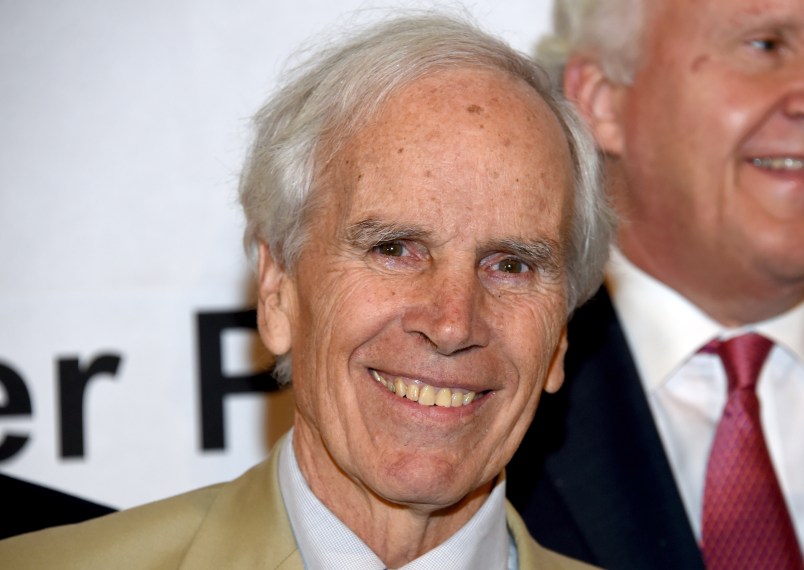SANTIAGO, Chile (AP) — Douglas Tompkins, the U.S. co-founder of The North Face and Esprit clothing companies has died from severe hypothermia in a kayaking accident in Chile, authorities say.
The 72-year-old environmental activist had bought up large swaths of land in South America’s Patagonia region to help keep them pristine.
The Aysen health service said the wealthy businessman was boating with five other foreigners on Tuesday when their kayaks capsized in a lake in the Patagonia region of southern Chile. Tompkins died later in the intensive care unit of the hospital in Coyhaique, a town 1,700 kilometers (1,056 miles) south of Santiago.
“He had lost consciousness and wasn’t breathing” when brought to the hospital by helicopter, Dr. Carlos Salazar told local television stations.
Chile’s army said strong waves on General Carrerra Lake caused the group’s kayaks to capsize. A military patrol boat rescued three of the boaters and a helicopter lifted out the other three, it said.
After retiring in 1989, Tompkins was active in conservation and environmentalism. He owned hundreds of thousands of hectares (acres) in Patagonia, a sparsely populated region of untamed rivers and other natural beauty that straddles southern Chile and Argentina. On his Chilean land, he created Pumalin Park, 290,000 hectares (716,606 acres) of forest, lakes and fjords stretching from the Andes to the Pacific.
“Doug was a passionate advocate for the environment,” The North Face said in a statement. “His legacy of conservation will help ensure that there are outdoor spaces to be explored for generations to come.”
Tompkins was one of the founders of The North Face, an activewear company that is now owned by VF Corp. of Greensboro, North Carolina. He also founded, with his wife, the Esprit clothing company.
An active outdoorsman, besides buying up land to preserve it, Tompkins also sometimes got involved in local environmental issues in Chile and Argentina. Many credit him with helping to raise consciousness about the toll that large man-made projects, such as dams, can have on ecosystems.
“For the environmental movement, not just in Chile but internationally, (Tompkins’ death) is a huge loss,” said Sara Larrain, a long-time friend of Tompkins who leads a Chilean environmental group. “This is somebody who put all his energy, all his fortune and his spirit in preserving ecosystems.”
__
Associated Press writers Luis Andres Henao and Patricia Luna in Santiago, Chile and Peter Prengaman in Buenos Aires, Argentina contributed to this report.
Copyright 2015 The Associated Press. All rights reserved. This material may not be published, broadcast, rewritten or redistributed.







Tompkins’s conservation work has few if any equivalents elsewhere–where a single individual has preserved so much wild land. The people of Chile will increasingly realize the gifts he’s left. For long decades his activities were considered nefarious (a foreigner buying land that effectively cut the narrow country into two pieces!) and harmful to the economy (tying up land that could otherwise be logged in the future). It’s the same as western U.S. interests 100 years ago opposed the creation of national parks and national forests in this country.
Because of its isolation and its climates that are rare in other parts of the globe, Chile is home to many unique endemic species of plants and wildlife. In the lower and more accessible coastal mountain ranges (as opposed to the Andes) the vast majority of the native forests have been cut down and replanted with faster-growing North American tree species such as Monterey pine to feed the export logging industry. Very small acreages of untouched remnant vegetation in the coast ranges were belatedly acquired by the Chilean government as nature preserves. Tompkins acted in time to preserve large enough areas in more remote parts of the country–where his fortune would stretch further–so that entire viable ecosystems would not be lost.
Dying doing what you love, in a place you loved and helped preserve. Not a bad way to live or die.
You said it. I’d much rather go that way than laying in a hospital bed full of tubes and monitors.